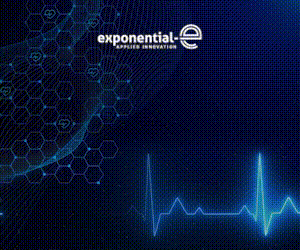
Obesity is a global health crisis, with rates rising at an alarming rate, in the UK over half the population is now overweight or obese.
This epidemic is caused by a combination of factors, including our modern obesogenic environment, easy access to ultra-processed foods, people living more sedentary lifestyles, and socioeconomic pressures meaning many cannot afford healthy options.
We’re witnessing a significant increase in conditions such as type 2 diabetes, hypercholesterolemia, cardiovascular diseases, certain cancers, sleep apnoea, and fatty liver disease, all of which can be linked to obesity.
Traditional healthcare approaches, while valuable, often struggle to provide the long-term, personalised support needed for effective weight management.
In response to these challenges, a new frontier in obesity treatment is emerging: digital health solutions. These platforms and apps are transforming how we approach weight loss, offering hope to those that have exhausted all traditional solutions.
Key Digital Health Solutions for Obesity Management
Personalised diet and nutrition apps are at the forefront of digital solutions.
These apps can use data to create custom meal plans, track calorie intake and offer nutritional advice tailored to individual needs and preferences.
They make it easier for users to make informed food choices and better understand how different foods affect them.
Fitness and activity trackers such as Garmin, Apple Watch and Whoop have become popular for those that want day-to-day data and insights.
These devices monitor physical activity, sleep patterns, and even heart rate, encouraging users to stay active and providing valuable data on their overall health.
Fitness and coaching apps like Peloton and Nike Training Club provide diverse workout options accessible from home which has massively increased access to exercise.
These platforms eliminate the need to go to a gym, which can be intimidating for those who feel self-conscious about their weight, encouraging consistent exercise habits and making fitness more inclusive.
Telemedicine and remote consultations are breaking down barriers to care.
They offer higher accessibility, particularly benefiting those who may feel ashamed or uncomfortable seeking help in person.
Users can connect with healthcare professionals from the privacy of their homes and around their schedule, making it easier to get support, guidance and prescriptions.
Online forums and support groups play a crucial role in obesity management as they help foster a sense of belonging and motivation, crucial for long-term success in weight management.
They allow users to connect with others facing similar challenges, share strategies, and celebrate victories.
While these digital health solutions offer a new approach to obesity management, they are not the only recent developments in this field.
New pharmaceutical treatments, among the most promising of these are GLP-1 and GLP-1/GIP receptor agonists, drugs that have shown remarkable progress in weight loss and obesity treatment.
GLP-1 and GIP Medications and Digital Health Integration
GLP-1, like Ozempic and Wegovy and and GLP/GIP dual receptor agonists, like Mounjaro are revolutionising weight loss treatment.
These agonists mimic the GLP-1 and GIP proteins that are made naturally in the intestines when we eat.
When used for weight management, these medications reduce appetite and the rate at which food leaves the stomach.

Martin Carlsson
As a result, users are thinking less about food, are satisfied with smaller portions, and aren’t craving unhealthy foods, leading to weight loss and improved metabolic health.
These medications offer promise for individuals who have struggled with obesity and exhausted most other methods.
However, their use requires careful management. Digital platforms play a crucial role in this process, supporting both patients and healthcare providers.
Specialised apps enable users to track side effects and efficacy, providing valuable data for personalised treatment.
Telemedicine services facilitate remote prescriptions and monitoring, ensuring that only suitable patients receive these medications.
This digital approach allows for constant oversight and quick adjustments to dosages, essential for safe and effective use, as individual reactions to these medications can vary significantly.
By integrating these digital tools, healthcare providers can offer more personalised and responsive care, maximising the benefits while minimising potential risks.
Bringing all Solutions Together into one Offering
Yazen is an example of a digital health platform that has brought all these solutions together into a singular platform, offering comprehensive support for weight loss.
Yazen integrates services from doctors, dietitians, psychologists, and personal trainers to provide a holistic approach and ensure patients are approaching their obesity treatment from all angles.
This 360° support system allows for personalised treatment plans that can be adjusted in real-time based on patient progress, continuous monitoring and feedback means patients can identify and flag any issues or barriers and allows for seamless follow-ups.
An integrated approach helps patients better understand the treatment and develop sustainable habits, supporting weight maintenance even with ongoing medication use.
Access to resources such as nutritional information, educational courses about weight management and an online community allow patients to complete lessons in their own time as well as connect with a community of people on their own weight loss journey.
By merging medication with comprehensive digital support, we can create personalised, long-term care plans that address each individual’s unique needs and challenges in managing obesity.
Challenges and Future Prospects
While digital health solutions offer promising advancements in obesity management, they also present challenges that need addressing.
Privacy concerns are at the forefront, as these platforms collect sensitive health data. Ensuring robust data protection measures is crucial to maintain patient trust and comply with regulations.
Looking ahead, the potential for AI-driven personalised treatment plans is exciting. AI could analyse vast amounts of patient data to create highly tailored interventions, potentially improving outcomes.
However, it’s important to emphasise that digital tools should complement, not replace, traditional healthcare.
The most effective approach is likely an integration of digital solutions with traditional medical care.
This combination can leverage the strengths of both methods, providing patients with comprehensive, accessible, and personalised obesity management.
The rise of digital health solutions marks a significant turning point in the battle against obesity.
These platforms are addressing the challenges posed by our environment and revolutionising healthcare access and delivery.
By combining technology with medical expertise and medications, we’re witnessing the emergence of more personalised, accessible, and effective obesity management.
These evolutions not only promise better outcomes for individuals struggling with obesity but also hold the potential to significantly impact the global obesity epidemic.








